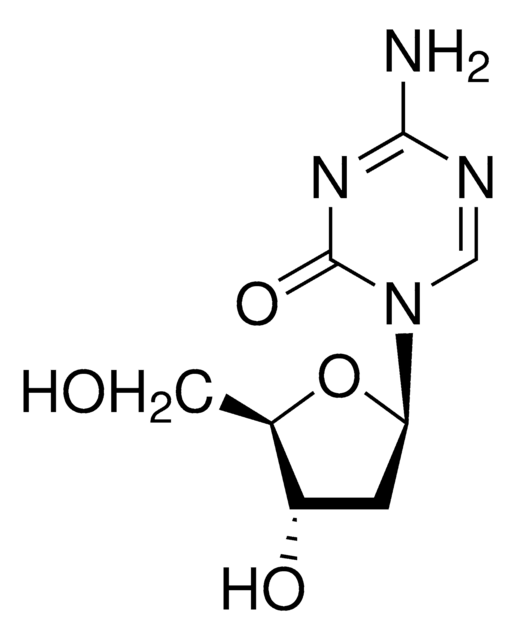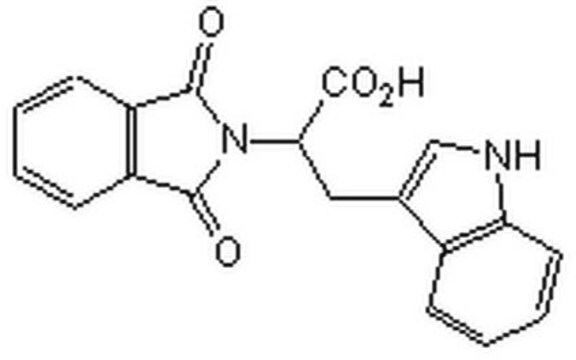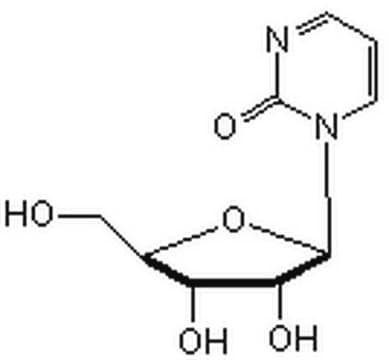189825
5-Aza-2′-Deoxycytidine
A cytosine analog that acts as a DNA methyltransferase inhibitor.
Sinónimos:
5-Aza-2′-Deoxycytidine, 5-Aza-CdR, 5-Aza-dC, 2′-Deoxy-5-azacytidine, Decitabine
About This Item
Productos recomendados
Quality Level
assay
≥98% (HPLC)
form
lyophilized
manufacturer/tradename
Calbiochem®
storage condition
OK to freeze
solubility
methanol: 1 mg/mL
50% acetic acid: 25 mg/mL
DMSO: 25 mg/mL
shipped in
ambient
storage temp.
2-8°C
InChI
1S/C8H12N4O4/c9-7-10-3-12(8(15)11-7)6-1-4(14)5(2-13)16-6/h3-6,13-14H,1-2H2,(H2,9,11,15)
InChI key
XAUDJQYHKZQPEU-UHFFFAOYSA-N
General description
Biochem/physiol Actions
DNA methyltransferase inhibitor
Packaging
Warning
Preparation Note
Reconstitution
Other Notes
Takebayashi, S., et al. 2001. Biochem. Biophys. Res. Commun.288, 921.
Zhu, W.G., et al. 2001. Cancer Res.61, 1327.
Hopkins-Donaldson, S., et al. 2000. Cancer Res.60, 4315.
Haaf, T. 1995. Pharmacol. Ther.65, 19.
Jones, P.A., and Taylor, S.M. 1980. Cell20, 85.
Legal Information
signalword
Danger
Hazard Classifications
Acute Tox. 4 Oral - Eye Irrit. 2 - Muta. 2 - Repr. 1B - Skin Irrit. 2 - STOT SE 3
target_organs
Respiratory system
Storage Class
6.1C - Combustible acute toxic Cat.3 / toxic compounds or compounds which causing chronic effects
wgk_germany
WGK 3
Certificados de análisis (COA)
Busque Certificados de análisis (COA) introduciendo el número de lote del producto. Los números de lote se encuentran en la etiqueta del producto después de las palabras «Lot» o «Batch»
¿Ya tiene este producto?
Encuentre la documentación para los productos que ha comprado recientemente en la Biblioteca de documentos.
Los clientes también vieron
Nuestro equipo de científicos tiene experiencia en todas las áreas de investigación: Ciencias de la vida, Ciencia de los materiales, Síntesis química, Cromatografía, Analítica y muchas otras.
Póngase en contacto con el Servicio técnico













